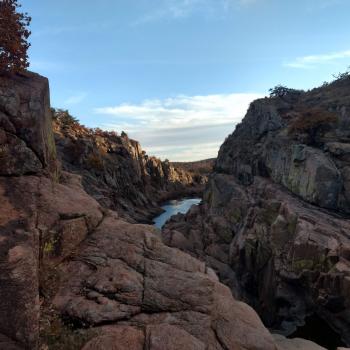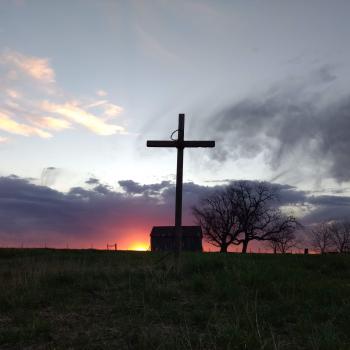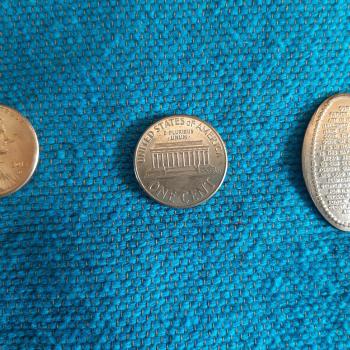
I wonder how much of our modern lives is about fleeing silence. True silence is a fearful thing for many, a disconcerting, bulgy reality that we do our best to avoid.
I recently learned of Orfield Laboratories in Minnesota, a company that has created an “anechoic chamber”–a special room designed to absorb sound and dampen background noise down into the negative decibel range. It’s used to test the noise output of products. NASA has used the lab to acclimate astronauts to the incessant quiet of space. The room has been declared “Earth’s quietest place,” and according to Stephen Orfield, the lab’s founder, 45 minutes is the longest anyone has been able to sit in that silent space.
That sounds like a challenge–one I would be interested to take. I love silence.
Most of the time. There’s a fearsome silence that’s always before us. As a pastor, I especially confront it at the beginning of the week, before the flurry of writing and preparation has descended for Sunday. Ministry is a funny profession (if it can be rightly called a profession–it’s more of a way of life.) When you can do anything, what should you do? Unlock the office door and plunk down in front of the computer. The whole world’s your oyster. Now what?
In the Scriptures, this is the silence of Psalm 115:17: “The dead do not praise the Lord, nor do any that go down into silence.” It’s a silence oriented toward death. “If the LORD had not been my help, my soul would soon have lived in the land of silence” (Psalm 94:17). This silence devours hope and meaning and any sense that time is a gift. It’s Ecclesiastes on overdrive: “vanity of vanities! All is vanity” (1:2). This is the sort of silence that disturbs us, slipping in whenever we find ourselves alone and awake. It’s why people turn on the TV and leave the room. That little background noise crusts a facade over the silence of our lives.
There’s a second silence in the Scriptures: sacred silence. “The LORD is in his holy temple; let all the earth keep silence before him!” (Habakkuk 2:20). This is the silence that resounds for half an hour in heaven after the seventh seal is opened in the book of Revelation (8:1). It’s a silence oriented toward God that comes upon us unbidden by awe or holy experience. Sometimes we can discover it in prayer.
In fact, prayer is the catalyst that turns devouring silence into sacred silence. That’s been my experience, at least. Prayer is what allows us to lean into the silent places of our lives, to reappraise silence and come to understand it as potential and gift. In prayer, silence goes from devouring emptiness to God’s lingering presence. Prayer permeates silence with love.
It’s in the long silence of winter that I most long for God’s sacred silence. At least you can garden in the summer. But in winter, cold and dark–the handmaidens of silence–broom us all indoors, and there we come face to face with our silence and with ourselves. There we have some choices, but really only one good option. It’s the one the psalmist sang of: “For God alone my soul waits in silence; from him comes my salvation” (Psalm 62:1).












